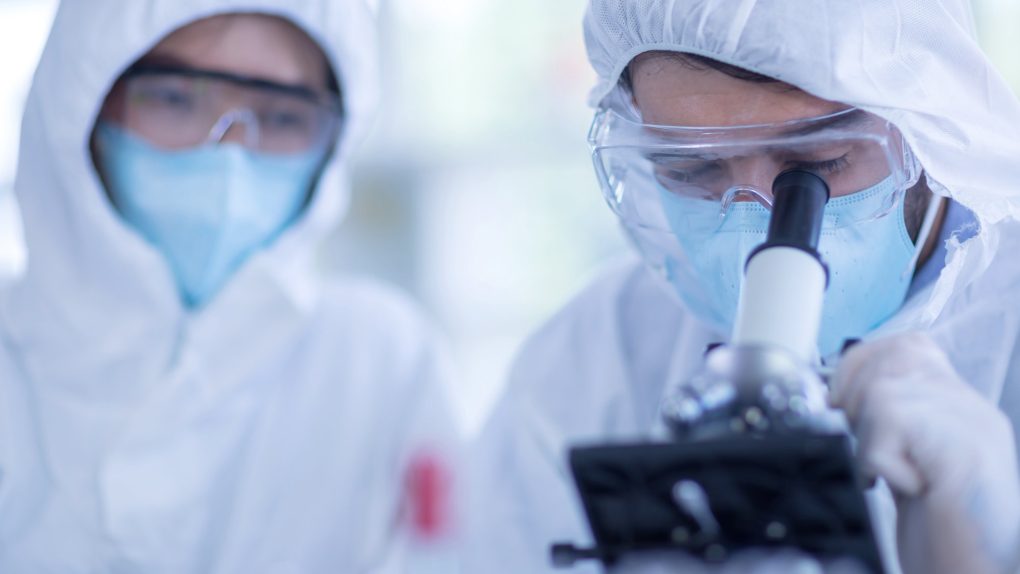- Researchers think a promising coronavirus treatment is 30 times more potent than remdesivir and can work against the highly infectious new mutations.
- Cancer drug plitidepsin can speed up the recovery of patients and, a study said a few months ago.
- A UCSF-led team has two studies out, indicating that the drug is more efficient than remdesivir and can kill the UK mutation.
- Plitidepsin doesn’t target the virus directly, but rather a human protein that the virus needs to replicate.
The first drug to be approved for COVID-19 therapy was remdesivir, but it did not prove to be the key med that would help doctors save lives or defeat the pandemic. The drug does work in some patients, but it’s not the definitive cure the world needs in addition to vaccines to end the pandemic. Multiple teams of researchers are on the lookout for new therapies to stop the coronavirus from claiming so many lives, with a UCSF-led group having now identified a cancer drug that appears to be almost 30 times more potent than remdesivir.
The drug is called Aplidin (plitidepsin), and we learned of it several months ago when researchers from Spain showed the drug was able to block the virus from replicating. Plitidepsin helped patients recover much faster than others who received standard care, and 81% returned home within 15 days, a significant improvement over the typical rate of return of 47%. Now, newer studies also show another key advantage the drug might have over other COVID-19 therapies: it works against the new, highly infectious SARS-CoV-2 mutations. That’s because rather than attacking the virus itself, the drug impacts a specific protein in human cells the novel coronavirus needs to replicate.
Spanish company Pharma Mar developed plitidepsin, which was extracted from a marine sea squirt called Aplidium albicans. The drug was approved in 2018 to treat multiple myeloma, but only after Pharma Mar dealt with some controversy back home. The European Union blocked the approval of plitidepsin in 2017, saying the risks outweighed the benefits — but Pharma Mar was able to overturn that decision.
“We need some new weapons in the arsenal,” UCSF molecular biologist Nevan Krogan told SF Chronicle about plitidepsin. “This is by far the best thing we’ve seen.”
Researchers from UCSF’s Quantitative Biosciences Institute (the QCRG group) worked with Mount Sinai and the Institut Pasteur in Paris. The QCRG researchers studied the coronavirus last year, looking to understand how it works at a microscopic level after it infects the human cell. The goal of the project was to find a way to block the virus. Of the thousands of drugs and experimental compounds tested in labs, plitidepsin stood out.
The scientists used extremely low concentrations of the drug to kill the virus in lung cells developed from human and monkey tissue. They then infected mice with the coronavirus and treated them with plitidepsin, discovering that the drug removed the virus from their bodies. Plitidepsin did not attack the virus directly like remdesivir or other drugs and vaccines. Instead, the virus blocks the activity of a specific protein inside the cells (eEF1A), without which the virus can’t replicate.
The full study was published in Science.
The researchers did not stop there, however. They partnered with a lab in the UK to test plitidepsin against the B.1.1.7 variant of the virus, the UK mutation that’s now dominant in the country. They found the drug can kill that strain too, and was more potent than remdesivir. That study was also posted online, but in a non-peer-reviewed format.
The team thinks the drug would continue to work against other mutations because of the eEF1A protein that it targets. “If you get a drug that targets a human protein, it would be incredibly hard for the virus to mutate away from being reliant on it,” Krogan said.
While the EU had concerns about the side effects of plitidepsin in cancer patients, Pharma Mar told The Chronicle that COVID-19 patients would require substantially lower doses than cancer patients. They’d also need to take it for just three days instead of months. The side-effects on COVID-19 patients have been minimal so far.
While plitidepsin sounds promising and could turn out to be a drug that further reduces COVID-19 deaths, strict human testing will have to be conducted before the drug can be approved for COVID-19 therapy. Phase 3 trials are planned in Spain and the US, according to Pharma Mar.








